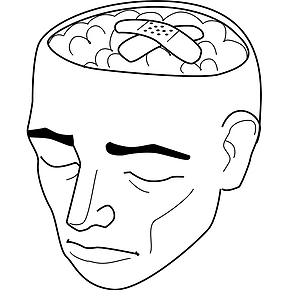Therapy for Anxiety and Depression
Psychological suffering is prevalent in our culture. Nearly 30% of the adult population is afflicted with a recognized psychiatric disorder. In spite of the advent of a wide range of psychiatric medications, the numbers of disabled mentally ill continues to climb.
Part of the problem is our North American culture insisting that we feel no pain. We have come to expect that we should encounter no hardship in life. We are trapped in the belief that life should always be lead “happily ever after” and discomfort is to be avoided at all costs. When the inevitable difficulties occur in life, we find it intolerable – a condition Albert Ellis termed “can’t-stand-it-itis”.

Western medicine has no answer for this trap, but is pretty good at medicating symptoms. This, of course is pharmaceutical avoidance of misery and perpetuates the message that we really can’t stand it. Symptom avoidance is a problem many believe is the fuel behind psychiatric disorders.
Western medicine is also very good at mending broken human machinery (my mother knees, broken bones, appendectomies). Unfortunately, there is no “soul transplant” or “spirit apparatus” to install when people suffer from extreme fear, sadness, hopelessness.
There is promising news in healing modalities that emphasize a more spiritual and mindful approach to symptoms rather than focus on prescription drug remedies and symptom alleviation as the goal. These modalities help you to make room for painful thoughts and feelings, reduce their impact, and decrease their influence in your life. “Mindfulness based practices” such as ACT, focus on leading a rich and meaningful life in spite of distressing thoughts and feelings. Paradoxically, symptoms often diminish with mindfulness practice, though symptom alleviation is not the primary goal of this therapy.
Northwest Counseling offers mindfulness based treatments of depression and anxiety that support clients in creating “psychological space”, re-connecting with values, taking meaningful action. Learn how to have a different conversation with your suffering and explore how you can create a life worth living.
-John


